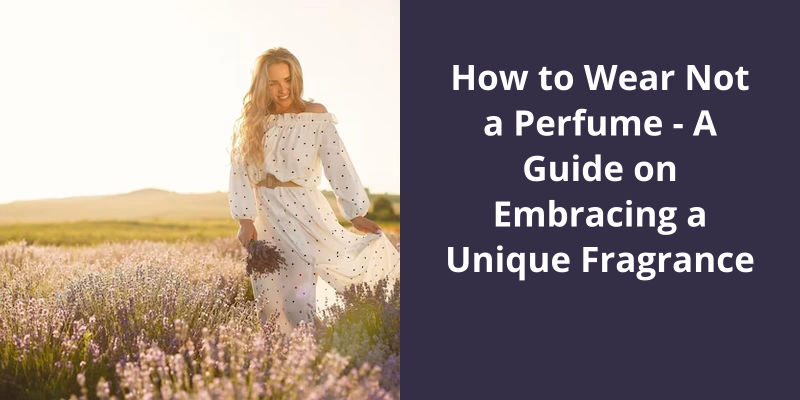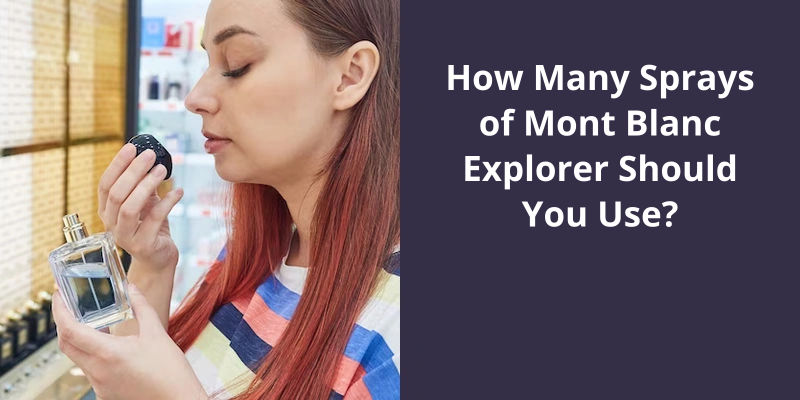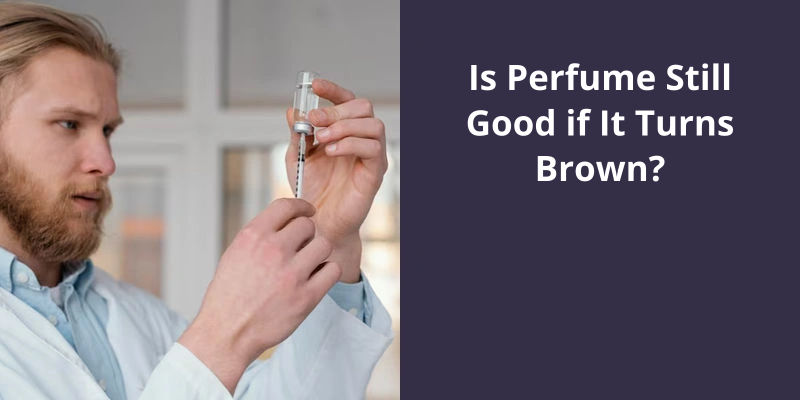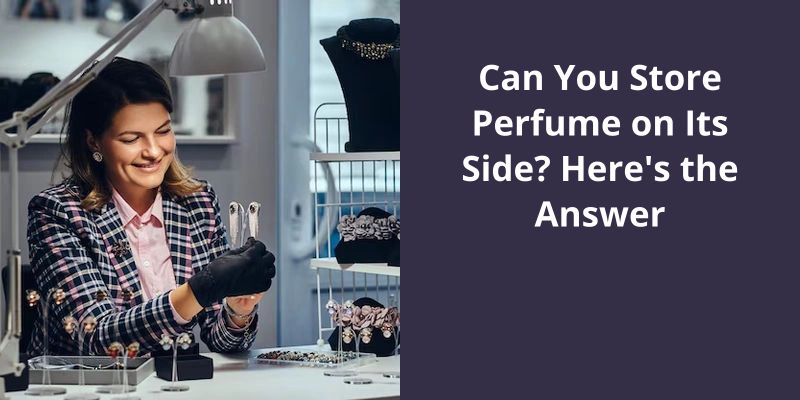Not a Perfume by Juliette Has a Gun isn’t your typical fragrance. It is, as the name suggests, not a perfume in the traditional sense. Instead, it’s more of an effect, a unique olfactory experience that enhances your natural scent. The key ingredient in Not a Perfume is Cetalox, also known as Ambroxan, a naturally occurring terpenoid that’s responsible for the odor of ambergris. Ambroxan is used in perfumery for creating ambergris notes and as a fixative, and when you wear Not a Perfume on your skin, it enhances the notes surrounding it, including your own natural skin scent. So, in essence, Not a Perfume isn’t just a fragrance you wear on top of your skin, but rather a fragrance that becomes a part of you, making it an incredibly personal and unique choice. To truly embrace and appreciate the beauty of Not a Perfume, it’s important to know how to wear it properly. This guide will provide you with all the information you need to confidently embrace this one-of-a-kind fragrance and make it your own.

What Perfume to Layer With Juliette Has a Gun?
For a more seductive and mysterious vibe, layer Not A Perfume with Midnight Oud. And for those who love a hint of sweetness, mixing Not A Perfume with Vanilla Vibes will give you the perfect balance. The possibilities are endless with Juliette Has A Guns versatile fragrance.
But how do you actually go about layering perfumes? It’s all about finding the right balance and knowing which scents complement each other. Start by spraying your base fragrance, in this case, Not A Perfume, on your pulse points. These areas generate heat, which helps the fragrance to diffuse and last longer. Then, let it settle on your skin for a few minutes.
Next, choose your complementary fragrance and spray it lightly on top of Not A Perfume. The key here is to use a lighter hand with the second fragrance to avoid overpowering the base scent. You want the two fragrances to blend seamlessly, creating a unique and personalized scent.
Dont be afraid to experiment and try different combinations until you find the perfect mix for you. The beauty of layering perfumes is that you can create your own signature scent tailored to your preferences and mood.
When it comes to wearing Not A Perfume and layering it with other fragrances, confidence is key. Embrace the uniqueness of this scent and allow it to become a part of your personal style. Wear it with pride and let the fragrance speak for itself. Remember, fragrance is a form of self-expression, so don’t be afraid to step outside the box and create your own olfactory masterpiece with Juliette Has A Guns Not A Perfume.
Watch this video on YouTube:
However, there’s one fragrance in particular that claims to smell different on everyone – Not a Perfume by Juliette Has a Gun. This unique perfume is said to have a singular ingredient called Cetalox, which reacts to the chemistry of each individual’s skin, creating a scent that’s completely personalized. Let’s explore the science behind this phenomenon and uncover if Not a Perfume truly lives up to it’s promise of being a fragrance that adapts to every person.
Does Not a Perfume Smell Different on Everyone?
Does Not a Perfume smell different on everyone? We all know that perfume smells change between each of us because of the chemicals in our bodies that affect how we perceive scents. Theres no such thing as “one size fits all.”. Perfumes are made up of hundreds of different chemical compounds, so there isnt one scent that works for everyone.
Not a Perfume, with it’s singular composition of Cetalox, a synthetic fragrance ingredient, offers a truly unique olfactory experience. As it adapts to the individual chemistry of each wearer, it’s fascinating to witness the transformation on different people. While some might find it to be more woody and musky, others might perceive it as floral or even slightly sweet. It’s the beauty of this fragrance: it’s ability to interact and meld with the wearers natural body scent, resulting in an entirely personalized aroma.
When it comes to wearing Not a Perfume, it’s essential to embrace it’s uniqueness and the fact that it will smell different on everyone. This fragrance is an invitation to embrace individuality and celebrate the diversity of personal scent chemistry.
To fully experience the transformative powers of Not a Perfume, it’s recommended to apply it directly to the skin rather than clothing. The warmth of the body enhances the fragrance and facilitates it’s interaction with the skins natural oils and chemistry, thereby heightening the personalized scent experience. Gently dab or spray it on pulse points, such as the wrists, neck, or behind the ears, to allow the fragrance to evolve along with your bodys natural heat and movements.
It’s versatility and adaptability make it an intriguing fragrance that offers a tailored experience for each wearer. So, don’t hesitate to embark on this olfactory journey and discover your own, one-of-a-kind scent identity.
The Science Behind How Our Bodies Chemistry Affects the Way We Perceive Scents
The science behind how our bodies chemistry affects the way we perceive scents is fascinating. Our individual body chemistry, including factors such as pH balance, hormones, and genetics, influences how we interpret and react to different fragrances.
This explains why a perfume that smells amazing on one person may not have the same effect on another. Our skin’s pH can alter the composition of a fragrance, resulting in a different scent being emitted. Similarly, body temperature and sweat can interact with perfumes, causing them to evolve and change throughout the day.
Furthermore, our sense of smell is closely linked to our memories and emotions. Certain scents can trigger powerful associations and evoke specific feelings or moods. This is why wearing a unique fragrance like “Not a Perfume” can be a personal and transformative experience, as it allows us to express our individuality and create lasting impressions.
So, the next time you wear a fragrance, remember that it interacts uniquely with your body chemistry, creating a scent that’s wholly your own. Embrace the subtle complexities and enjoy the journey of discovering the perfect fragrance that resonates with your personality.
Source: Is it true that every perfume smells different on …
Finding the right perfume can be a daunting task, but it can be even more frustrating when the scent doesn’t seem to last on your skin. There are several reasons why this might happen and understanding them can help you choose the right fragrance and make it last longer.
Why Doesn’t Perfume Smell on Me?
Applying too much perfume can actually have the opposite effect and make it difficult for the scent to truly develop and be noticeable on your skin. This is because the molecules in the fragrance can become overwhelming and overpowering, creating a cloud of scent that’s difficult to distinguish. In moderation, perfume can enhance your natural scent and create a pleasing aura around you, but excessive application can easily backfire.
Another reason why perfume may not smell on you could be due to the pH level of your skin. Everyone has a unique skin chemistry, and certain scents may not interact well with your specific pH level. This can alter the way a fragrance develops and lingers on you, resulting in a shorter lifespan of the scent or even a complete lack of detectable fragrance.
Sometimes, environmental factors can also play a role in the longevity and projection of a perfume on your skin. Heat, humidity, and even the type of fabric you’re wearing can influence how a fragrance performs.
To enhance the longevity and projection of a fragrance on your skin, there are a few steps you can take. First, make sure to moisturize your skin before applying perfume. Dry skin tends to absorb scent more quickly, leading to a shorter lifespan. By hydrating your skin beforehand, you create a barrier that slows down the absorption process, allowing the fragrance to linger.
Being mindful of the type of products you use on your skin can also make a difference. Avoid using heavily scented lotions, oils, or body washes that can compete with or overpower your chosen perfume. Instead, opt for unscented or lightly scented products to ensure that your fragrance remains the star.
Lastly, consider experimenting with different application techniques. Rather than spraying perfume directly onto your skin, try spraying it onto your clothes or hair. Fragrances tend to adhere better to fabrics and hair, providing a longer-lasting scent experience. Additionally, layering scents can help to create a more complex and unique fragrance that will stand out and be more noticeable on your skin.
In addition to it’s common name, perfume is also referred to as Eau de Parfum. It’s recognized as the highest concentration of oil in fragrance, typically containing around 20% oil. This potent formulation allows the scent to linger on the skin from morning until evening, providing long-lasting enjoyment for perfume enthusiasts.
What Is Perfume Also Known As?
Perfume, also known as Eau de Parfum, is the most potent oil concentration among all fragrance categories. With an average oil concentration of 20%, a single perfume bottle can contain a significant amount of fragrance. This high concentration makes perfumes incredibly long-lasting, often lasting from morning till evening for the user.
Not only does perfume tend to have a more potent scent, but it also offers a more complex and layered olfactory experience. The combination of various oils, extracts, and essences creates a unique fragrance that evolves over time. The top notes provide an initial burst of refreshing scents, while the middle notes develop after a few minutes, showcasing the heart of the fragrance. Finally, the base notes linger for hours, creating a lasting impression.
When it comes to wearing perfume, it’s essential to choose a scent that resonates with your personality and style. Not a Perfume, a unique fragrance in itself, encourages wearers to embrace their individuality and break free from traditional scent norms. It offers a minimalist approach, composed of a single note, Cetalox. This singular ingredient provides a clean and fresh scent that adapts to the wearers skin, enhancing their natural aroma.
To fully embrace the uniqueness of Not a Perfume, it’s recommended to apply it sparingly. A little goes a long way with this fragrance, as it’s concentrated formula ensures a long-lasting scent. Start by spritzing a small amount on pulse points like the wrists and neck, allowing the fragrance to blend with your bodys natural oils. This minimalistic approach will create a subtle yet memorable fragrance trail.
Embracing a unique fragrance like Not a Perfume means embracing your individuality and embracing the confidence to stand out from the crowd. It’s distinctive scent is sure to leave a lasting impression, making it perfect for those who dare to be different. So, be fearless, be expressive, and wear Not a Perfume with pride. Let it’s single note scent tell your unique story, and revel in the joy of embracing a fragrance that sets you apart.
Different Types of Perfume Concentrations (e.g., Eau De Toilette, Eau De Cologne)
When it comes to perfume, there are different concentrations available that can greatly affect the fragrance’s intensity and longevity on the skin. One of the most commonly known concentrations is Eau de Toilette, which typically contains 5-15% perfume oil and has a moderate projection and staying power. On the other hand, Eau de Cologne has a lower concentration, usually around 2-4% perfume oil, resulting in a lighter scent that fades more quickly.
For those seeking a more potent and longer-lasting fragrance, there’s Eau de Parfum. This concentration usually contains 15-20% perfume oil, offering a stronger projection and better staying power compared to Eau de Toilette or Eau de Cologne. Finally, there’s Perfume or Parfum, the highest concentration available with 20-30% perfume oil, delivering an intense and long-lasting scent that can linger on the skin for hours.
When wearing a unique fragrance like Not a Perfume, it’s essential to consider the concentration that suits your preferences and occasion. Eau de Toilette and Eau de Cologne are ideal for daily use or warmer weather, providing a subtle and refreshing scent. Eau de Parfum and Perfume, on the other hand, are more suited for special occasions when you want a stronger and more long-lasting olfactory experience. Experimenting with different perfume concentrations can help you embrace the uniqueness of Not a Perfume and find the perfect balance that suits your personal style.
In addition to traditional perfume, there’s an alternative option that appeals to those who prefer alcohol-free products: bath and body oils. These oils not only provide a great alternative for those who aren’t willing to use alcohol, but they also effectively bond the fragrance to the skin. To further enhance the longevity of your chosen scent, fragrance expert Daniel recommends layering by using a shower gel and body lotion with the same fragrance.
What Is the Alternative to Wearing Perfume?
If youre someone who isn’t keen on wearing traditional perfumes, there’s a wonderful alternative that you can explore – bath and body oils. These oils are a fantastic option for those who aren’t willing to use alcohol-based fragrances. Not only do they provide a unique and gentle scent, but they also offer nourishing benefits for the skin.
To enhance the longevity of your chosen fragrance, Daniel, a fragrance expert, suggests layering the scent with other products from the same line. For example, using a shower gel and body lotion with the same scent can further enhance the fragrance and make it more pronounced. By using products that are specifically designed to complement each other, you can create a multi-dimensional scent experience that’s unique to you.
As the scent blends with your natural body chemistry, it creates a fragrance that’s uniquely yours. This personalized aroma can leave a lasting impression and make you feel confident and alluring.
In addition to their scent-enhancing properties, bath and body oils also offer nourishing benefits for the skin. The natural oils used in these products have moisturizing and hydrating properties, making them an excellent choice for people with dry or sensitive skin.
So, if youre not a fan of traditional perfumes, don’t despair! From their long-lasting scent to their nourishing properties, these oils are a wonderful way to embrace a fragrance that’s truly your own.
Conclusion
Instead of being a traditional perfume, it’s more of an effect. By embracing Not a Perfume and allowing it to interact with your body chemistry, you can create a scent that’s truly your own. So, forget about conforming to traditional perfume norms and embrace the unconventional nature of Not a Perfume. Spray it on your skin, let it enhance your natural scent, and enjoy the confidence and individuality it brings.





